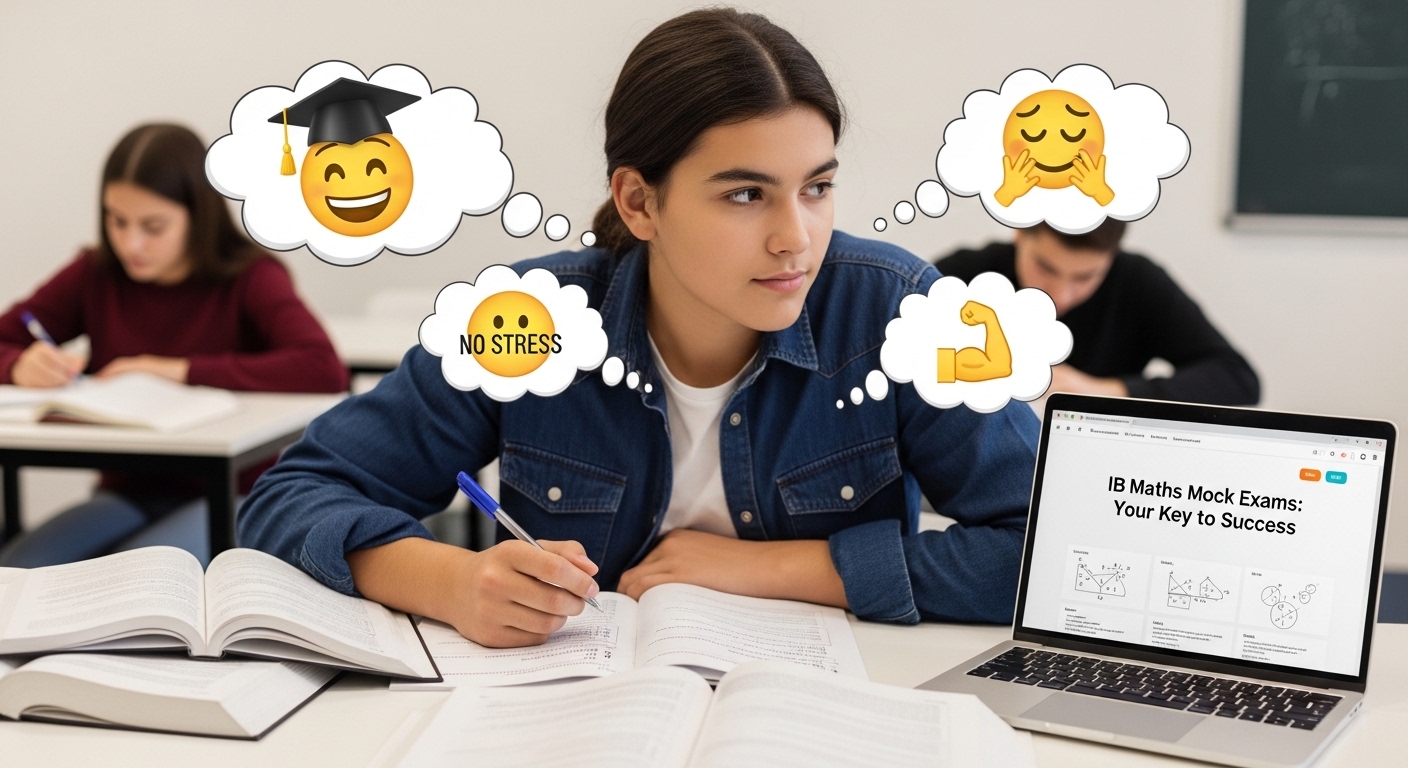When students face the choice between IB Maths AA and IB Maths AI, the decision can feel overwhelming. At Mathzem, we work with both pathways every day, and one of the most common questions we hear from students and parents is:
“Who is IB Maths AI actually meant for?”
This guide cuts through the confusion and explains — simply and clearly — what IB Maths Applications and Interpretation (AI) is, who it benefits, and how it differs from AA. Whether you’re choosing your course or supporting your child’s decision, this breakdown will help you make the right choice.
Table of Contents
What Is IB Maths Applications and Interpretation (AI)?
IB Maths AI focuses on applying mathematics to real-life contexts.
While AA leans heavily toward pure maths and calculus, AI leans toward:
- Data analysis
- Statistics
- Mathematical modelling
- Real-world applications
- Use of technology and calculators
In other words:
AI = data, modelling, statistics, applied maths, and digital tools.
Students don’t just learn how to solve problems — they learn how to interpret and apply mathematical results to real-life situations.
Who Should Choose IB Maths AI?
IB Maths AI is designed for students who:
- Prefer practical, real-world maths
- Enjoy interpreting data, graphs, and trends
- Are less interested in abstract algebra or deep calculus
- Learn better through visual or contextual examples
- Want to build strong analytical, problem-solving, and modelling skills
- Feel more comfortable using technology (e.g., GDC calculators)
It’s ideal for students who want to use maths professionally without needing heavy theoretical knowledge.
Which Careers and Degrees Prefer IB Maths AI?
AI is recognised worldwide, and many university pathways actually prefer it because of its practical focus.
Common fields that accept or prefer IB Maths AI include:
- Psychology
- Biology
- Social sciences
- Business
- Economics (for many universities AI SL is fine)
- Digital design
- Architecture (varies—some require AA SL/HL)
- Humanities
- Media and communication
- Environmental science
- Data and statistics-based roles
- Marketing and analytics
For STEM-heavy fields like engineering, physics, or pure mathematics, AA HL is usually more suitable. But for most business, social sciences, and applied science courses, AI is a strong and fully accepted choice.
AI SL vs AI HL: Which One Is Right for You?
Both SL and HL share the same foundations, but their depth and complexity differ.
IB Maths AI SL (Standard Level)
AI SL is ideal for students who:
- Want maths skills for everyday, academic, and professional life
- Prefer applied problem-solving over abstract algebra
- Want to meet university requirements without excessive intensity
- Feel less confident in heavy algebra
AI SL covers:
- Introductory statistics
- Patterns and modelling
- Number and algebra basics
- Geometry and trigonometry in practical contexts
- Technology-based data exploration
- Real-world mathematics
IB Maths AI HL (Higher Level)
AI HL is ideal for students who:
- Enjoy working with data at a deeper level
- Want to analyse and build complex models
- Are confident using digital tools
- Need HL mathematics for selective university programmes
- Prefer applied reasoning over pure maths theory
AI HL covers everything from SL plus:
- Advanced statistics
- More complex modelling
- Challenging probability scenarios
- Extended IA expectations
- Technology-driven exploration
AI HL is rigorous — but in a different way from AA HL. It demands strong interpretation skills, comfort with large datasets, and the ability to justify mathematical decisions clearly.
How IB Maths AI Is Assessed
Assessment structure varies slightly between SL and HL:
AI SL
- Paper 1: Short-response questions (calculator allowed)
- Paper 2: Extended-response questions (calculator allowed)
- IA: Mathematical exploration (20%)
AI HL
- Paper 1: Short-response (calculator allowed)
- Paper 2: Extended-response (calculator allowed)
- Paper 3: HL-modelling problems requiring deep interpretation
- IA: More detailed investigation with higher expectations
AI assessments heavily reward clarity, reasoning, and real-world application of mathematical methods.
Common Misconceptions About IB Maths AI
Myth 1: “AI is the easy course.”
Not true.
AI challenges students in different ways — interpreting complex data, constructing models, and justifying conclusions clearly.
Myth 2: “Universities don’t accept AI.”
Incorrect.
Most global universities accept AI SL and HL for a wide range of courses.
Myth 3: “AI students won’t learn ‘real maths.’”
False.
AI students learn extensive applied mathematics, modelling, statistical reasoning, and technology-based methods widely used in modern careers.
Why IB Maths AI Works Well for Many Students
At Mathzem, we find that many students achieve better outcomes in AI because:
- They feel more comfortable with practical scenarios
- They enjoy using technology
- They understand mathematical ideas more deeply when grounded in real life
- They gain confidence when maths feels relatable
For students with anxiety around abstract maths, AI often provides a more accessible and enjoyable pathway.
Tips for Succeeding in IB Maths AI
1. Practice interpreting real-life situations
AI questions often start with a scenario that you must break down mathematically.
2. Use your calculator intelligently
AI relies heavily on using the GDC efficiently — learn shortcuts early.
3. Build modelling intuition
Understand how to choose and justify a model (linear, exponential, quadratic, etc.).
4. Don’t ignore the theory
Even though AI is applied, theory still matters — especially for HL.
5. Work with a tutor who understands IB structure
AI requires clear explanations and structured reasoning. Mathzem tutors specialise in building these skills step by step.
See Mathzem’s membership and pricing here:
https://mathzem.com/membership-pricing/
FAQs About IB Maths AI
Q1: Is AI easier than AA?
Not easier, just different. AI focuses on applied maths, while AA focuses on theory and calculus.
Q2: Can I get into university with AI SL?
Yes. Most non-STEM degrees fully accept AI SL.
Q3: Does AI HL count as a “real maths” HL?
Yes. Universities recognise AI HL as a full HL maths course.
Q4: Should I choose AI if I struggle with algebra?
Often yes, AI uses less complex algebra than AA, especially at SL.
Q5: Can I switch between AI and AA?
Possible early in the programme. Switching later is difficult due to differing foundations.
Conclusion: Is IB Maths AI the Right Choice?
IB Maths AI is built for students who want practical, meaningful maths that connects directly to real life. If you prefer interpreting graphs, analysing data, and solving real-world problems, AI is likely your best option.
Whether you’re aiming for business, social sciences, design, psychology, or general university routes, AI provides the mathematical skills you’ll actually use.
If you want support from expert tutors who understand the IB structure and teach AI in a clear, confidence-boosting way, Mathzem is ready to guide you.
Explore our tutoring membership options here:
https://mathzem.com/membership-pricing/






